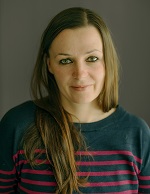The public defence will be held as a video conference over Zoom.
The defence will follow regular procedure as far as possible, hence it will be open to the public and the audience can ask ex auditorio questions when invited to do so.
Click here to participate in the public defence
Due to copyright reasons, an electronic copy of the thesis must be ordered from the faculty. In order for the faculty to have time to process the order, it must be received by the faculty no later than 2 days prior to the public defence. Orders received later than 2 days before the defence will not be processed. Inquiries regarding the thesis after the public defence must be addressed to the candidate.
Digital Trial Lecture - time and place
Adjudication committee
- First opponent: Postdoctoral Research Fellow Anne J Hill, The University of Queensland, Australia
- Second opponent: Professor II Kari Kværner, Norwegian Business School, Oslo
- Third member and chair of the evaluation committee: Professor II Ole Morten Rønning, Institute of Clinical Medicine, University of Oslo
Chair of defence
Professor Anne Moen, Institute of Health and Society, University of Oslo
Principal Supervisor
Associate Professor Frank Becker, Institute of Clinical Medicine, University of Oslo
Summary
One of the most devastating consequences of stroke is aphasia, a language and communication impairment seen in one third of stroke survivors. Existing evidence favours intensive therapy methods, but current rehabilitation services seems not to provide therapy at a sufficient intensity. Telerehabilitation may overcome barriers of resource limitations, and represents a new service delivery model in future stroke care. Evidence to support aphasia telerehabilitation is however still scarce.
In this thesis, we aimed to evaluate the feasibility, acceptability and effectiveness of aphasia therapy delivered by videoconference in addition to standard treatment. We performed a randomised, controlled trial where participants with post-stroke aphasia were randomly allocated to receive speech and language therapy by videoconference together with standard treatment or standard treatment alone.
The primary language outcome was naming ability four-months after inclusion. Secondary language outcomes were repetition, comprehension, sentence production and functional communication. In addition, secondary outcomes comprised of feasibility and acceptability, evaluation of the technical setup, satisfaction with delivered therapy and analysis of data safety and privacy aspects of the telerehabilitation.
In the trial, we found no significant differences in naming, comprehension and functional communication. However, significant between-group differences were seen in repetition and sentence production. The intervention was found to be feasible and acceptable and showed tolerable technical fault rates with high satisfaction among participants and speech-language pathologists. Access to clinical and technical expertise was a key factor of success and is recommended when developing telerehabilitation services. We found speech and language therapy by videoconference to be a viable service model to increase intensity and dosage of speech and language therapy in post-stroke aphasia.
Additional information
contact the research support staff
